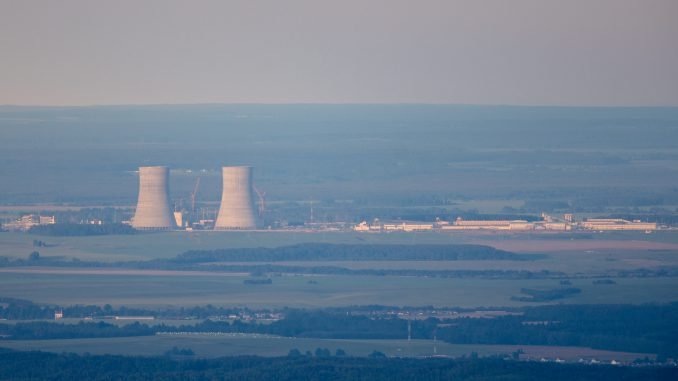
The stress tests were carried out at the nuclear facility in 2016 by Atomprojekt, an enterprise of the project’s main contractor Rosatom, and later reviewed by an international panel of experts, set up by European Nuclear Safety Regulators Group (ENSREG).
“On Monday, ENSERG will deliberate the stress test peer review, and upon its endorsement, the results will be officially presented in Brussels,” Michail Demcenko, head of Lithuania’s State Nuclear Power Safety Inspectorate, who took part on the stress test peer review, told BNS Lithuania.
In his words, the results of the stress test peer review and recommendations will cover previously raised issues related to the plant’s safety, its resistance to earthquakes and the management of major accidents.
Lithuania presented its comments to the international expert group in the middle of January. The country’s experts said then they missed evidence of Astravyets NPP’s resistance to the impact of a commercial plane crash, as well as information on ensuring the independence of a system for managing major accidents.
Lithuania is also having doubts over the analysis of the project’s resistance to extreme earthquakes as it was based on 1997 research.
Lithuania’s key question on the selection of the plant’s construction site was also not discussed and remains unanswered, as well as issues related to the project’s environmental impact and measures to ensure the quality of the construction and safety of its future operation.
Lithuania is the key critic of Astravyets nuclear facility, situated some 50 kilometers from Vilnius, and last year officially recognized this project as posing threat to national security, environment and public health.
Minsk claims the power plant is being constructed safely. Belarus hopes to launch Astravyets’ first reactor by the end of the next year and the second reactor should be operational by the middle of 2020. The project is being funded by the Russian government.
